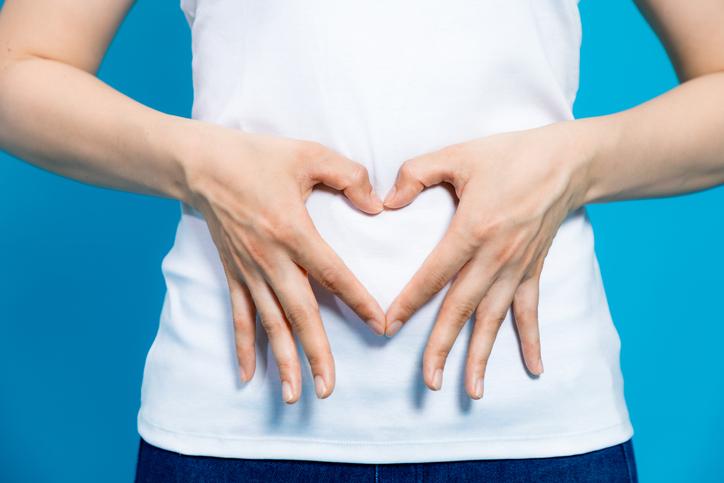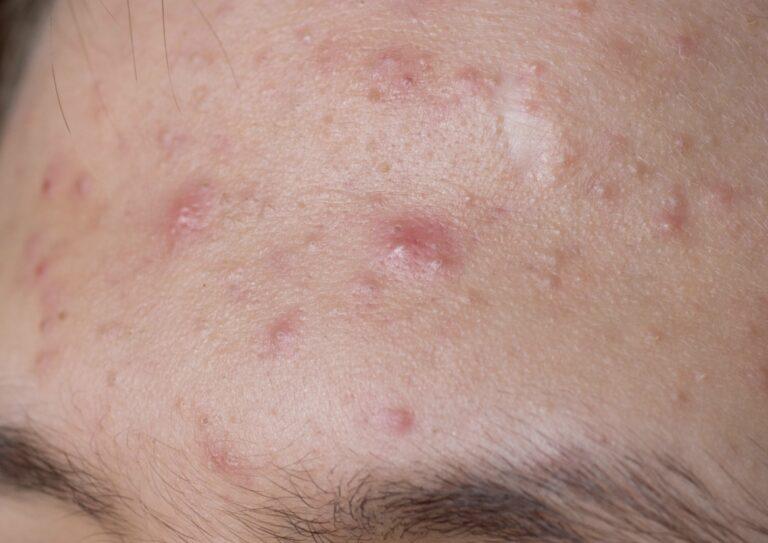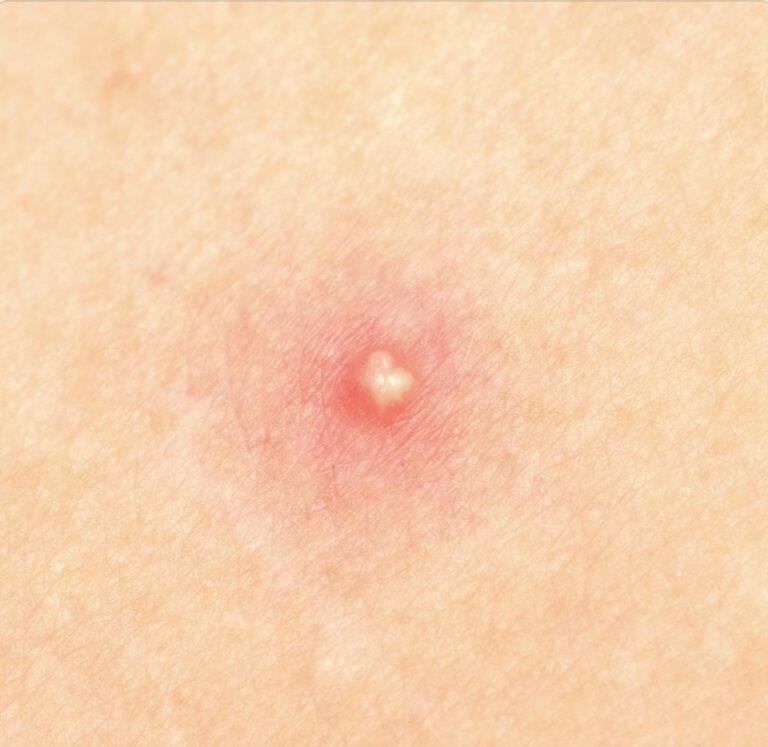Acne
Get valuable insights into Acne, including its causes, symptoms, prevention strategies, and treatment options, while also learning about how you can lower the cost of the medications used to treat Acne.
MEDICAL INFORMATION
Acne Key Facts
Related Medications
Acne is a prevalent skin condition that affects individuals of various ages, causing physical and emotional challenges. Here, we aim to provide you with an in-depth understanding of acne, including its causes, types, clinical presentation, treatment options, and effective management strategies.
What is the definition of acne?
The clinical definition of acne is a chronic inflammatory skin condition characterized by the presence of comedones (blackheads and whiteheads), papules, pimples, pustules, nodules, or cysts. It is caused by oil glands (clogging of hair follicles with oil/sebum), dead skin cells, and bacteria, typically involving the face, chest, back, and shoulders. Acne can range in severity from mild to severe and can be accompanied by symptoms such as redness, inflammation, pain, and potential scarring. It is commonly associated with hormonal changes during adolescence but can persist into adulthood or develop later in life. Acne is a multifactorial condition influenced by hormonal factors, sebum production, follicular hyperkeratinization, and bacterial colonization.
What are the causes and pathophysiology of acne?
The causes and pathophysiology of acne are multifactorial, involving a combination of genetic, hormonal, and environmental factors. Here are the main contributors to the development of acne
Hormonal Factors
- Androgens: Hormones, such as testosterone, increase during puberty and stimulate the sebaceous glands to produce more sebum (oil). Excessive sebum production contributes to the development of acne
- Hormonal Fluctuations: Hormonal imbalances, such as those experienced during menstrual cycles in females, can cause acne breakouts
Excessive Sebum Production
- Sebaceous Glands: Overactive sebaceous glands produce an excess amount of sebum, which can contribute to clogged hair follicles
- Genetic Predisposition: Genetic factors can influence the size and activity of sebaceous glands, making individuals more prone to excessive sebum production
Follicular Hyperkeratinization
- Abnormal Skin Cell Shedding: The skin cells lining the hair follicles can shed irregularly, leading to the accumulation of dead skin cells within the follicles
- Hyperkeratinization: The excess dead skin cells mix with sebum and form a plug, creating a comedone (either open, called a blackhead, or closed, called a whitehead)
Bacterial Colonization
- Propionibacterium acnes (P. acnes): The bacterium P. acnes, which naturally resides on the skin, can proliferate within the clogged hair follicles. The presence of bacteria triggers an immune response, leading to inflammation
Inflammation
- Immune Response: The immune system reacts to the presence of bacteria and trapped sebum by releasing inflammatory chemicals, causing redness, swelling, and tenderness associated with acne lesions
- Release of Pro-inflammatory Mediators: Inflammatory mediators, such as cytokines, contribute to the enlargement of sebaceous glands, increased sebum production, and the formation of inflammatory acne lesions
Other Contributing Factors
- Skin Irritation: External factors like friction, pressure, or contact with certain substances (cosmetics, oils) can irritate the skin and exacerbate acne
- Diet: Some studies suggest that high-glycemic-index foods and dairy products may influence acne development in certain individuals, although the relationship is still under investigation
- Family History
Medications
- Lithium therapy is known to cause acneiform eruptions
What are the different types and clinical presentation of acne?
Acne can manifest in various types and clinical presentations. The following are the different types of acne lesions commonly observed
Non-Inflammatory Acne Lesions
Comedones
- Open Comedones (Blackheads): These appear as small, dark spots on the skin’s surface. The dark color is not due to dirt but is caused by oxidation of melanin when the pore is open and exposed to air
- Closed Comedones (Whiteheads): These are small, flesh-colored bumps beneath the skin’s surface. The pore is closed, preventing exposure to air
Inflammatory Acne Lesions
- Papules: Small, raised, red bumps on the skin caused by inflammatory responses to blocked hair follicles
- Pustules: Similar to papules, but with a white or yellowish center due to the presence of pus
- Nodules: Larger, solid, and painful lumps beneath the skin’s surface. Nodules develop deep within the hair follicles and are associated with severe inflammation
- Cystic Acne: Deep, painful, pus-filled lesions that can cause scarring. Cysts are the most severe form of acne and require medical intervention
Clinical Presentation
The clinical presentation of acne can vary depending on the severity and type of lesions. It commonly occurs on the face, but can also affect the chest, back, neck, and shoulders. The following clinical characteristics may be observed:
Lesion Distribution
- Localized: Acne lesions confined to specific areas, such as the forehead, nose, or chin
- Generalized: Acne lesions scattered across multiple areas of the face or body
Lesion Severity
- Mild Acne: Characterized by the presence of primarily non-inflammatory lesions (comedones) with occasional papules
- Moderate Acne: Involves a combination of non-inflammatory (comedones) and inflammatory lesions (papules, pustules)
- Severe Acne: Presents with a large number of inflammatory lesions (nodules, cysts) accompanied by comedones
Presence of Scarring
- Acne scars can result from severe inflammatory lesions or from picking or squeezing acne lesions. Scarring may manifest as depressed (atrophic) or raised (hypertrophic) areas on the skin
Associated Symptoms
- Inflammation: Redness, swelling, and tenderness around acne lesions
- Pain and Discomfort: Nodules and cysts can be painful and may cause discomfort or sensitivity
The clinical presentation of acne varies from individual to individual. It is important to note that acne can have a significant impact on self-esteem and psychological well-being, particularly in severe cases or when scarring occurs. Seeking professional guidance from dermatologists or healthcare providers can help develop a personalised treatment plan based on the type and severity of acne lesions.
Treating acne?
The treatment options for acne depend on the severity of the condition and the individual’s specific needs. Here are the main treatment modalities used to manage acne:
Topical Acne Treatments (Creams, Gels, Lotions and Ointments)
- Retinoids: Topical medications derived from vitamin A that help unclog pores, reduce inflammation, and promote skin cell turnover. Examples include tretinoin, adapalene, and tazarotene
- Benzoyl Peroxide: Useful in acne flare ups. Kills bacteria, reduces inflammation, and helps remove excess oil. It is available over-the-counter and in prescription strengths
- Topical Antibiotics: Medications, such as clindamycin and erythromycin, that help control bacterial growth and reduce inflammation
- Azelaic Acid: Helps reduce skin problems by unclogging pores, reducing inflammation, and normalizing skin cell turnover
- Salicylic Acid: Helps unclog pores, remove dead skin cells, and reduce inflammation
Oral Acne Medications
- Oral Antibiotics: Prescribed for moderate to severe acne to reduce inflammation and control bacterial growth. Commonly used antibiotics include tetracycline, doxycycline, and minocycline
- Oral Contraceptives: For females with hormonal acne, certain birth control pills containing estrogen and progestin can help regulate hormone levels and improve acne
- Anti-Androgens: Medications like spironolactone can help block the effects of androgens (male hormones) and reduce sebum production
- Isotretinoin: A powerful oral retinoid prescribed for severe acne or acne resistant to other treatments. It is highly effective but requires close monitoring due to potential side effects
Procedural Treatments
- Extraction: Manual removal of comedones, pustules, and cysts by a dermatologist using sterile instruments
- Chemical Peels: Application of a chemical solution to exfoliate the skin, unclog pores, and reduce acne lesions. Peels can be superficial or deeper, depending on the severity of acne
- Laser and Light Therapies: Various light-based treatments, such as photodynamic therapy (PDT), laser therapy, and intense pulsed light (IPL), can target bacteria, reduce inflammation, and promote skin healing
- Steroid Injections: Administered by a dermatologist for large, painful acne cysts to reduce inflammation and speed up healing
Combination Therapy
Different treatments may be used together to achieve better outcomes, such as combining topical treatments with oral medications or procedural interventions.
Skincare and Self-Care
- Gentle Cleansing: Use mild cleansers to gently cleanse the skin twice a day
- Non-Comedogenic Products: Choose non-comedogenic (non-pore-clogging) cosmetics and skincare products
- Avoid Picking or Squeezing: Picking or squeezing acne lesions can worsen inflammation and increase the risk of scarring
- Sun Protection: Regular use of broad-spectrum sunscreen to protect the skin from harmful UV rays and prevent post-inflammatory hyperpigmentation
Summary
Acne is a common skin condition with physical and psychological implications. Understanding its causes, types, clinical presentation, and available treatment options is crucial for effective management. With appropriate skincare, lifestyle modifications, and tailored treatment plans, individuals affected by acne can achieve clearer skin, improved self-esteem, and enhanced overall well-being.
Medical Disclaimer
NowPatient has taken all reasonable steps to ensure that all material is factually accurate, complete, and current. However, the knowledge and experience of a qualified healthcare professional should always be sought after instead of using the information on this page. Before taking any drug, you should always speak to your doctor or another qualified healthcare provider.
The information provided here about medications is subject to change and is not meant to include all uses, precautions, warnings, directions, drug interactions, allergic reactions, or negative effects. The absence of warnings or other information for a particular medication does not imply that the medication or medication combination is appropriate for all patients or for all possible purposes.
























